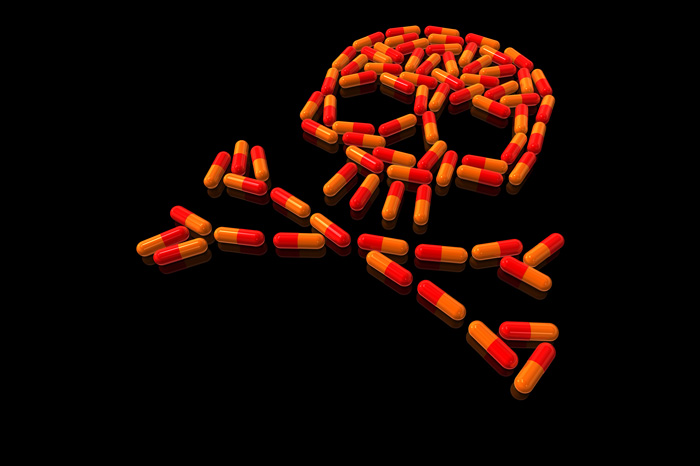Rich Figlewski’s addiction to painkillers began like so many others who get addicted to prescription drugs. After suffering a shoulder injury at work and having surgery, he began abusing the medications he was prescribed to alleviate the pain.
“I began purchasing and stealing prescription opiates,” says Figlewski. “My drug use began to spin out of control and so did my life.”
According to the National Institutes of Health, an estimated 20 percent of people in the United States have used prescription drugs for nonmedical reasons. Experts don’t know exactly why this type of drug abuse is increasing. The availability of drugs is probably one reason. Doctors are prescribing more drugs for more health problems than ever before.
In Connecticut, drug poisoning is the leading cause of accidental death, and kills more people than vehicular accidents. Pain pills like Percocet, Vicodin, and OxyContin are the most commonly abused prescription drugs.

As we mark National Poison Prevention Week, experts with the Connecticut Poison Control Center (CPCC) say more attention needs to be paid to this growing public health problem.
“Nearly every town in the state has experienced at least one opioid-related overdose death,” says Amy Hanoian-Fontana, community education specialist with the CPCC. “And those impacted range across all categories of race, class, and geography.”
Part of the reason for the increasing abuse of prescription drugs may be the misperceptions about their safety.
“Because these medications are prescribed by doctors, many assume they are safe to take under any circumstances,” explains Hanoian-Fontana. “Using a medication other than as prescribed can potentially lead to a variety of adverse health effects, including overdose and addiction.”
Figlewski tried to commit suicide on Good Friday 2007. Instead he drove into a telephone pole and was arrested for driving under the influence. Ironically, that crash saved his life. It served as a wake-up call.
“I quit drinking, drugging, and have not used either substance since,” explains Figlewski. “I had lost my family, home, and was without hope. I knew if I continued doing what I was doing I would die, end up in jail, or in an institution.”
When taken as directed, opioids can be very effective in relieving pain. However, the body soon begins to develop a tolerance for the medication, so that the same dose of medication offers less pain relief and you begin to crave larger doses.
Poison control experts offer these tips for patients taking pain medications:
- Do not increase your dosage without consulting your doctor.
- Be aware of potential interactions with other substances, such as alcohol, antihistamines, anti-anxiety drugs, and sleep aids.
- Do not sell or give your medications to others, or accept medications from other sources than a pharmacy.
- Tell your doctor about any other drugs you take, including over-the-counter medicines.
- Tell your doctors if you have a history of substance abuse, an addictive personality, or are experiencing signs of addiction.
“I believe what needs to be done is an educational push toward understanding and acceptance of addiction as a disease rather than a life choice,” says Figlewski. “If a patient is diagnosed with cancer, all of the community and its benefits become available. A person with an addiction problem is left to their own devices in most cases.”
Figlewski is the founder and president of the nonprofit organization called The Dry Dock in Wallingford. It is a place where people in the community can get together in a sober place, where the environment is supportive and non-judgmental.
Figlewski says for those who are not in detox or rehab, there are not a lot of safe and supportive places where people can go to get and stay sober. “People don’t want to end up as addicts or alcoholics,” he says. “The disease takes over our lives. Not only ruining our lives, but the lives of the people around us.”
Follow the UConn Health Center on Facebook, Twitter and YouTube.



